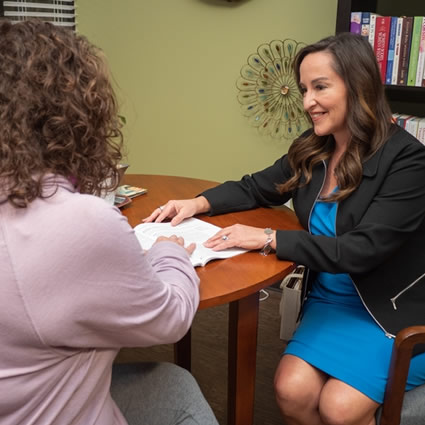Low Thyroid Treatment
 Fatigue or low energy. Weight gain. Dry skin. If you experience any of these symptoms, you may have low thyroid function, which can show up in one of two ways. The first is critical hypothyroidism. In this case, the pituitary (the conductor) tells the thyroid what to do. It finds that the thyroid is not working well enough so it starts “yelling” at the thyroid. The result is you see higher levels of thyroid-stimulating hormones (clinical hypothyroidism).
Fatigue or low energy. Weight gain. Dry skin. If you experience any of these symptoms, you may have low thyroid function, which can show up in one of two ways. The first is critical hypothyroidism. In this case, the pituitary (the conductor) tells the thyroid what to do. It finds that the thyroid is not working well enough so it starts “yelling” at the thyroid. The result is you see higher levels of thyroid-stimulating hormones (clinical hypothyroidism).
The other type is a subclinical version of hypothyroidism. That means the TSH and the pituitary think everything is going fine. What happens is the thyroid may be producing an initial hormone called T-4 but that hormone needs to be converted to T3.
It’s through that conversion process and the levels of active T3 that are too low. So essentially the woman who might be experiencing this subclinical version will have the symptoms of thyroid deficiency but often her labs will look normal because the doctors are not looking at all of the thyroid hormones.
We see a lot of women these days with Hashimoto’s, an autoimmune condition where the body is attacking the thyroid. It happens a lot post-pregnancy and because of the hormonal changes that take place during perimenopause and menopause.
In this case of Hashimoto’s where the thyroid function is impaired due to autoimmune activity often our diet and things like gluten and other foods can be contributing to the attack on the thyroid. Gut health can have an impact on the immune system and thyroid function.
When a woman is experiencing symptoms of weight gain, dry skin, hair loss, or a loss of the outer eyebrow, often she has these symptoms but she may not be getting tested properly to distinguish if the thyroid is actually off.
The other side of it is the thyroid doesn’t operate in exclusion of the other hormones. If all the thyroid labs look normal but we’re still experiencing those symptoms often there is a problem with the adrenal gland or the sex hormones and the stress response that is driving all of it.
What Betty finds in her clinical practice is you need to look at everything going on to get a real picture because most of the time it’s more than one problem. If you have a low thyroid you will start gaining weight, have significant fatigue and possibly experience hair loss across the top of your head and loss of the outer edge of the eyebrow. Other symptoms include dry skin on the heels, constipation, and dry skin. All of these also can be common symptoms of perimenopause and menopause.
Fatigue often shows up as brain fog or as if the brain is running in slow motion. We look at all those things to see what might be causing the underlying issue. You also need certain nutrients to make that active T3 hormone. These nutrients include selenium, iodine, zinc, vitamin A, and tyrosine. While they are all found in the diet they may be in short supply; or in some cases, iodine might be too high.
Our Approach
Betty thoroughly assesses a client’s status which may help to fix the thyroid problem without the person having to take medication. Often people may get medicated and they don’t feel any better and their symptoms don’t improve. While their numbers look in range on the labs, they aren’t feeling any better or experiencing any benefits from the conventional treatment. That’s usually because there’s something underlying that hasn’t been corrected.
To help her clients, Betty looks at the entire picture. This includes all the hormones including sex hormones, the thyroid, and the adrenals. “I also will look at gut health, food intolerances, and nutritional levels to determine what needs to be repaired, tweaked, and improved to help fix the underlying cause,” said Betty.
As a Dallas Functional Nutritionist, Betty’s goal is to fix low thyroid so you may not need to rely on medication.
Book an Appointment
If you have low thyroid, we want to help. Contact us today to schedule an appointment. Please note that you don’t need a referral to see Betty.
CONTACT US

